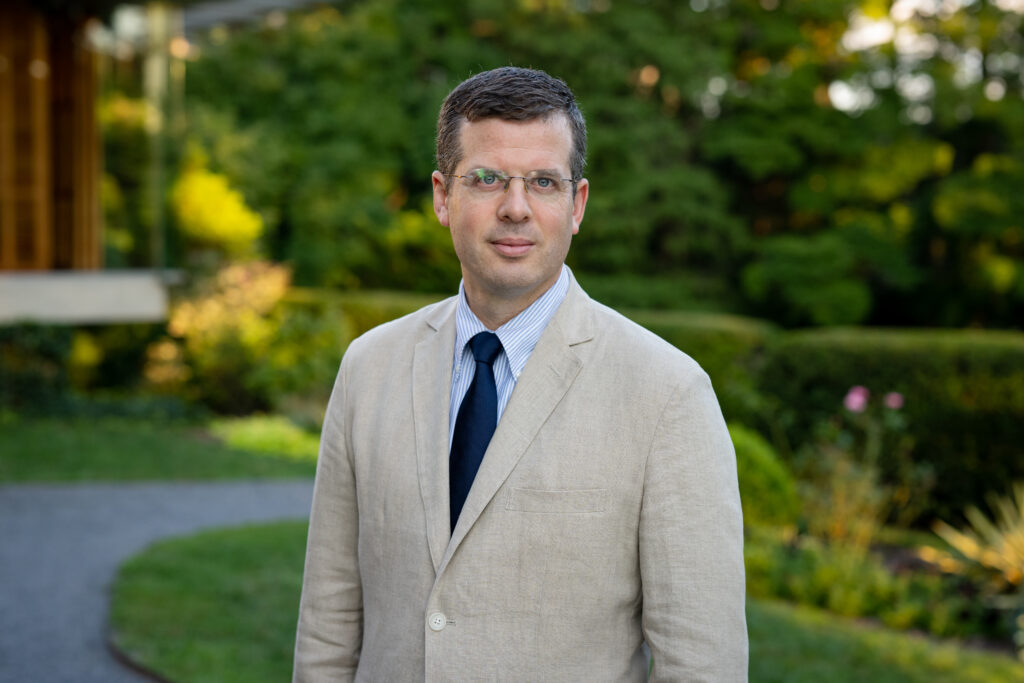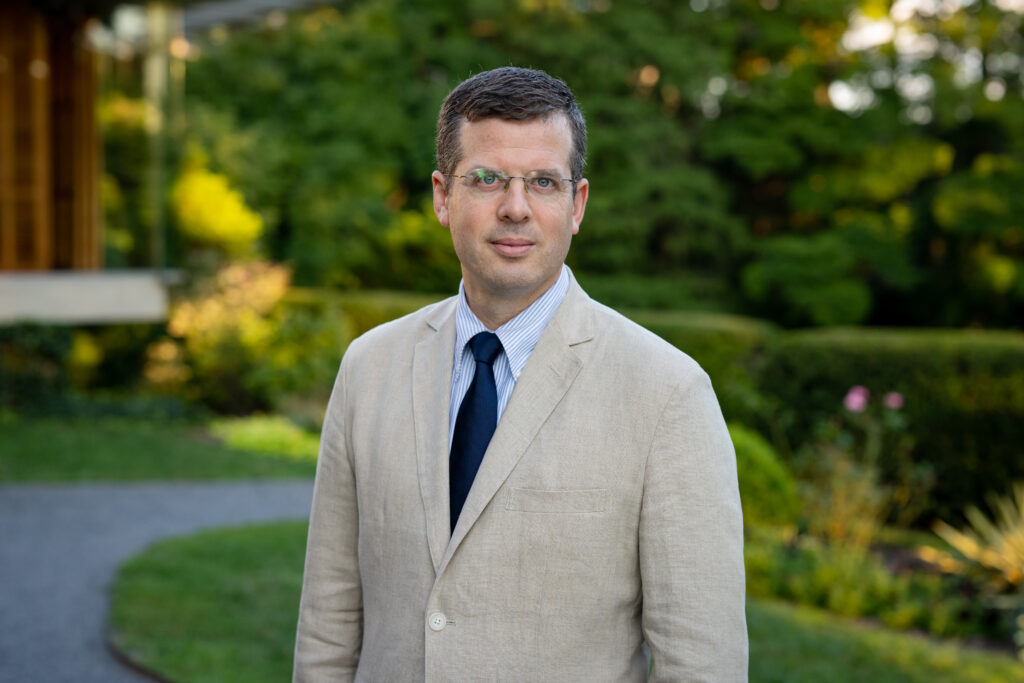In a gripping episode of Jewish National Fund-USA's IsraelCast, host Steven Shalowitz sat down with Dr. Ronen Shoval—philosopher, author, and Dean of the Argaman Institute—to discuss his firsthand experiences with rising anti-Zionist sentiment on college campuses and his thought-provoking new book, Holiness and Society.
Silencing Zionist Voices on Campus
Dr. Shoval recounted a chilling episode from his time as a lecturer at Princeton University in March 2023. Invited to give a public lecture at the campus Hillel, he was met with hostility before even stepping inside.
“I got a phone call from the person who invited me, letting me know there was a huge demonstration outside,” Shoval recalled. “He asked me if I was afraid. I said, ‘Don’t worry, I’ve been in the IDF. Some students aren’t going to scare me.’”
Despite his confidence, university officials insisted that a police officer escort him into the building. The moment he stepped inside, he found himself at the center of a disruptive and aggressive protest.
“I was speaking about the philosophical background of the judiciary reform in Israel—nothing controversial, I thought,” he explained. “But the protesters outside were holding signs accusing Israel of apartheid. Some even managed to enter the building and disrupt my talk.”

Dr. Ronen Shoval
Unable to continue, Dr. Shoval had to cut his lecture short. What followed was an even more troubling development: Princeton faculty members actively sought to have his seminar on The Meaning of Life in Different Cultures canceled.
“The fact that other professors tried to cancel my class was shocking,” he said. “These weren’t even discussions related to Israel—yet just my association with Zionism was enough for them to try to silence me.”
When he attempted to meet with the university dean to discuss the matter, he was met with silence. “The dean never responded to my emails,” Shoval said. “I went to his secretary multiple times, but I never got a meeting. That’s when I knew I wasn’t welcome.”
The Erosion of Academic Integrity
Dr. Shoval’s experience is emblematic of a broader problem—an ideological shift in universities that has made it difficult, if not impossible, for pro-Israel voices to be heard.
“We used to believe universities were about free inquiry, the search for truth,” he observed. “Now, radical voices dominate, and dissenting views are suppressed.”
He noted that much of academia, particularly in the humanities, has been hijacked by ideologies that reject Western traditions and historical context.
“I was teaching Aristotle’s Politics, which discusses slavery,” he explained. “Does that mean we can’t study Aristotle anymore? Universities should be places where students engage with different perspectives. Instead, they’re being taught what to think rather than how to think.”
Dr. Shoval pointed to Harvard’s ranking as the worst university in the U.S. for free speech as a symptom of this crisis. “That says it all,” he remarked. “When institutions that once stood for rigorous debate now actively suppress discussion, we have a problem.”
Returning to Israel and the Battlefield
After his tumultuous experience at Princeton, Dr. Shoval accepted an offer from the Ethics and Public Policy Center in Washington, D.C., which gave him the freedom to pursue his work without ideological constraints. This decision proved crucial when Hamas launched its brutal attack on Israel on October 7, 2024.
“When I heard what had happened, I knew I had to go back,” he said. “I took the first flight home and rejoined my unit in the IDF.”
For three months, Dr. Shoval served in the West Bank, leading a group of 30 soldiers. “We had over 100% turnout for reserves—soldiers banging on the doors, demanding to volunteer. It was incredible,” he recounted. “The younger generation in Israel—the so-called TikTok generation—showed remarkable dedication. They understand that defending Israel isn’t just a duty; it’s a moral imperative.”
Holiness as a Political Ideal
Despite his work in academia and the military, Dr. Shoval’s true passion lies in philosophical inquiry. His latest book, Holiness and Society, challenges conventional understandings of politics and morality.
“People think holiness is a private matter, a personal virtue,” he explained. “But in the Torah, Moses commands the nation to be holy. Holiness isn’t just for individuals—it’s a political category.”
In the book, Shoval explores how Jewish political thought offers alternative models to modern ideologies. He points to the concept of Jubilee, a biblical economic reset that prevents generational poverty, as an example of how Torah principles could address contemporary issues.
“The founding fathers of Israel—Ben-Gurion, Jabotinsky, Berl Katznelson—understood this,” he said. “They saw Israel not just as a safe haven, but as a moral beacon. A city on a hill.”
When asked what Israel should strive for, he responded with a powerful vision:
“If someone hears the word ‘Brazil,’ they think of the Amazon or soccer. If they hear ‘Italy,’ they think of pizza or the Colosseum. What should people think of when they hear ‘Israel’? Morality. A nation that treats the poor with dignity, defends its people with justice, and shines as an example to the world.”
A Fight Worth Fighting
Dr. Shoval remains optimistic about the future, despite the challenges Zionism faces in academia and beyond.
“Universities used to be places of discovery, where students questioned everything,” he said. “Now, they’re centers of ideological enforcement. But history has shown us that truth prevails. We just have to fight for it.”
As the conversation wound down, host Steven Shalowitz asked him one final question: If given the chance, what would he ask Moses?
“I wouldn’t say much,” Dr. Shoval admitted. “I’d just watch and learn.”
This IsraelCast episode was a stark reminder of the battle for truth in academia and beyond. As Dr. Shoval demonstrated, standing up for Zionism isn’t just about defending Israel—it’s about defending free thought, historical integrity, and the moral foundations of society.
To hear the full conversation, tune in to IsraelCast, powered by Jewish National Fund-USA.


